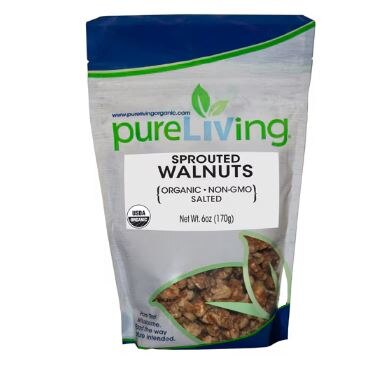Organized religion isn’t my jam, but maybe it’s yours. Your faith might guide your life — and how you eat can be part of it.
Different religions dot the globe, so faith-based nutrition isn’t monolithic. Even within a religion or in adherence to, say, the Bible, variations emerge.
“There is no universal definition or set guidelines for biblical nutrition principles,” says Samantha Turner, MPH, RDN, a registered dietitian and owner of Forks and Grace in Southwest Virginia. “Each faith-based dietitian has their own ‘clinical judgment’ in terms of the best approach to physical nutrition habits … depending on how they interpret the Bible.”
Still, certain guidelines apply across the board. “All dietitians have been trained in evidenced-based nutrition and are required to keep up with research and continuing education,” Turner says.
Turner’s biblical nutrition principles align with Scripture’s messages for how to improve physical and spiritual health. Another component is ‘intuitive eating,’ as put forth by dietitians Evelyn Tribole and Elyse Resch, a non-diet approach for building healthy eating habits without judging yourself.
“Using biblical nutrition principles and faith-based intuitive eating habits matters because it can help improve your overall health and relationship with food,” Turner says. “Most importantly, it puts focus on choosing nutrient-rich foods that God intended for us to consume to live a nourished life, without giving food control over our lives.”
What is Biblical Nutrition?
The body needs to be nourished through six main nutrients, Turner says. “This nutrition information has been researched and is evidenced-based from a scientific standpoint, however, as you read through the Bible, you can see that these principles were first introduced and confirmed by God.”
- Protein (Genesis 9:3)
- Fat (Leviticus 7:22-24, which specifies the fat you shouldn’t eat)
- Carbohydrates (Genesis 1:29)
- Vitamins and minerals (Genesis 1:31)
- Water (Isaiah 58:11 and John 4:14)
Incorporating biblical nutrition principles in your life doesn’t need to be complicated. Here are three tips from Turner to get you started:
Build meals biblically
Every balanced meal should contain four types of food — produce, protein, fat, carbs — so you can “nourish your body to honor and glorify God (1 Corinthians 6:19-20),” Turner says. “Your body is a temple that has been fearfully and wonderfully made (Psalm 139:14).”
How to
Plan your meals for the week, picking foods that fall into each category. Write in list format, so you have a broad but detailed view:
- Produce (fruits and vegetables)
- Protein (animal or plant based)
- Fat (avocados, olive oil, nuts, seeds, cheese)
- Carbs (starchy veggies, fruits, grains)
Notice that the foods in these categories inherently have vitamins, minerals and/or water, covering the needed nutrients mentioned earlier.
Stop idolizing the “dieting” mentality
“Unfortunately, our society has idolized diets and diet culture, which has led many people down a wrong path when it comes to nutrition habits,” Turner says. “There is so much noise in the world about which foods are ‘good’ versus ‘bad’ or ‘healthy’ versus ‘unhealthy,’ which gives food moral value that it shouldn’t have. Food is a gift from God, and the sole purpose of food is to provide fuel to the body.”
How to
Learn where your food comes from and how its components serve your body — which foods contain carbs, protein, fats, vitamins, minerals and water?
“This can help you appreciate how gracious God is that He provides you with the gift of food for nourishment,” Turner says.
Learn how much of each nutrient your body needs to keep you healthy, something a dietitian can help you refine.
Don’t use food as an emotional crutch
“When you use food to cope with stress, anxiety, fear, happiness, joy, etcetera, you turn to it for comfort and reward — instead of turning to God,” Turner says. “God can handle your emotions and help you find a way to cope with them (1 Corinthians 10:13). He also promises to help you overcome your challenging situation.” Food, on the other hand, is like a Band Aid, a quick fix that doesn’t address the underlying problem.
How to
Next time you find yourself staring in your pantry after a long, stressful day at work, take 30 seconds and ask yourself:
- Am I truly hungry, or am I seeking comfort?
- What emotions am I feeling right now, and why?
- Is there a healthier strategy I can use to address my emotions than turning to food?
Pay attention to your answers and let them guide your next move.
“Faith-based intuitive eating helps you get connected to what your body truly needs to feel nourished and helps you shift your mindset around food,” Turner says. “It will play a role in your nutrition habits for the rest of your life because it allows you to have grace with your eating habits and can allow you to connect deeper with God’s purposes for food in your life.”
Featured Products



The post What is Biblical Nutrition & Is It Only for Believers? first appeared on The Upside by Vitacost.com.


